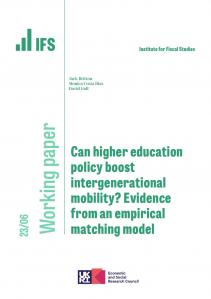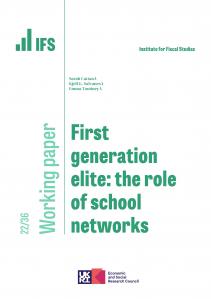We provide evidence on whether providing university students with feedback on their past exam performance affects their future exam performance. Our identification strategy exploits a natural experiment in a leading UK university where different departments have historically different rules on the provision of feedback to their students. We find the provision of feedback has a positive effect on students’ subsequent test scores: the mean impact corresponds to 13% of a standard deviation in test scores. The impact of feedback is stronger for more able students and for students who have less information to start with about the academic environment, while no subset of individuals is found to be discouraged by feedback. Our findings suggest that students have imperfect information on how their effort translates into test scores and that the provision of feedback might be a cost-effective means to increase students' exam performance.










